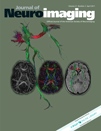The No Smoking Sign—Insular Infarction
Conflicts of Interest and Funding: None
Disclosure Statement: All authors have no financial disclosures. All authors had access to the data and have contributed to the content of the manuscript and approve the final version of this paper as submitted.
J Neuroimaging 2011;21:e169-e170.
Abstract
ABSTRACT
BACKGROUND
Cigarette smoking is the most common preventable cause of morbidity and mortality in developed countries. Smokers with brain damage involving the insula are 136 times more likely to stop smoking immediately after the injury than smokers with brain injuries elsewhere.
METHODS
Case Report
RESULTS
A 58-year-old woman with a history of hypertension, coronary artery disease, and 40 pack-year history (1 pack per day for 40 years) of smoking presented with sudden confusion and word-finding difficulty. Initial neurological examination showed disorientation to time, difficulty following commands, and perseveration. No focal motor, sensory, or visual deficit was present. Noncontrast head CT showed a new insular ischemic stroke. Five months after discharge from the hospital, the patient reported that she had not resumed smoking cigarettes, had not used any smoking cessation aids, and had not intended to stop smoking. Her daughter reported that “it was as if she forgot that she used to smoke.”
CONCLUSION
Unintentional abrupt smoking cessation serves as a unique lesion localizer. Insular hypocretin transmission plays a permissive role in the motivational properties of nicotine in animals. Whether the mechanism of smoking cessation relates to hypocretin secretion has yet to be proven in humans.




